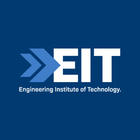Master of Engineering (Electrical Systems)
Master of Engineering (Electrical Systems)
The Master of Engineering (Electrical Systems), developed by electrical and renewable energy experts, will equip you with the necessary skills and knowledge to address the demands of the modern power industry. You will learn how to design the components of a power system including generation, transmission, distribution and the associated…
Categories
COURSE DESCRIPTION
The Master of Engineering (Electrical Systems), developed by electrical and renewable energy experts, will equip you with the necessary skills and knowledge to address the demands of the modern power industry. You will learn how to design the components of a power system including generation, transmission, distribution and the associated systems. The program will also cover the automation, protection and control components that contribute to the high level of reliability expected from modern power systems.
Program Details
The rapid development of the renewable field has led to a shortage of fully skilled electrical engineers who are competent in both classic power system operation and renewable system integration.
The program presents the widely used wind and solar energy as centralized and distributed power sources as well as the effects of renewable integration on classic power issues. You will also learn energy storage as an integral part of a microgrid or at a larger utility level. You will get the opportunity to understand the use of artificial intelligence and machine learning as data-driven approaches in smart grids with the application of smart meters. The section on project management provides the skills required for effective management of power generation, transmission, and distribution projects.
The Project Thesis, the capstone of the program, requires a high level of personal autonomy and accountability, as it reinforces the knowledge and skill base developed in the previous units. As a significant research component of the program, this project will facilitate research, critical evaluation, and the application of knowledge and skills with creativity and initiative, enabling you to critique current professional practice in the electrical engineering industry.
Program Structure
You must complete 48 credit points comprising twelve core units and one capstone thesis. There are no electives in this program. The program duration is two years, and we deliver units over four terms per year, so you will take two units per term. There will be a short break between years.
Potential Job Outcomes
Potential job roles include engineering and management positions in the following areas of expertise:
- Electrical and electronics system design
- Instrumentation, control systems & automation
- Oil & gas
- Systems engineering
- Communication systems
- Embedded systems
- Mining
- Manufacturing
- Building
- Electric vehicles
- Power generation & distribution
- Renewable and energy storage systems.
For this course, online option also available.
REQUIREMENTS
To gain entry into this program, applicants need one of the following:
- a) a recognized 3-year bachelor degree in an engineering qualification in a congruent field of practice.
- b) an EIT Bachelor of Science (Engineering) degree in a congruent field of practice.
- c) a 4-year Bachelor of Engineering qualification (or equivalent), that is recognized under the Washington Accord or Engineers Australia, in a congruent, or a different field of practice at the discretion of the Admissions Committee.
- d) a 4-year Bachelor of Engineering qualification (or equivalent) that is not recognized under the Washington Accord, in a congruent field of practice to this program. AND
- An appropriate level of English Language Proficiency equivalent to an English pass level in an Australian Senior Certificate of Education, or an IELTS score of 6.0 (with no individual band less than 6.0)
EDUCATIONAL INSTITUTION
The Engineering Institute of Technology (EIT) delivers industry driven programs to equip its students with the skills required in the real industrial world. Its study options are available across Perth and Melbourne; and include classroom sessions, practical lab exercises, assessments, class discussions and self-study. Additionally, students enjoy access to industry experts based around the globe through live and interactive online presentations. All EIT programs provide access to remote laboratories and cutting-edge simulation software. Hands-on laboratory practicals are an essential component of EIT’s programs to ensure students put theory into practice. These hands-on workshops cover the major discipline-specific applied skills required for competency in engineering practice.




